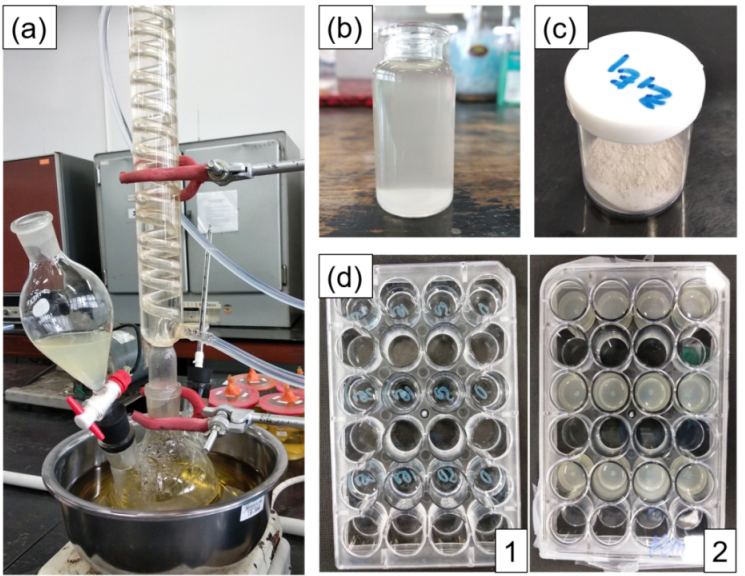ZnO nanoparticles are multipurpose material with wide range of applications, such as photocatalyst and antibacterial agent. A novel method to synthesize ZnO nanoparticles is biological method, which uses plant extracts as reducing and capping agents. Plant extracts are superior agents for synthesizing nanoparticles because they are free from toxicants and provide essential phytochemical substances as reducing and capping agents. Compared to physical and chemical routes, biological method is an efficient and eco-friendly method because of the relatively mild operating condition. Due to numerous variety of composition and content of biomolecules in plant extracts, synthesis of nanoparticles through biological method requires different process conditions from the others. This study intends to identify characteristic of ZnO nanoparticles synthesized by fruit extract of Averrhoa bilimbi in different precursor concentration and volume ratio of precursor to extract, and also to explore its potential application as antibacterial/antibiofilm agent.
Plant extract was prepared by extraction of A. bilimbi fruit pulp. Synthesis of ZnO nanoparticles was performed by varying zinc precursor concentration and volume ratio of precursor to extract. Formation of ZnO nanoparticles was studied by UV-Vis spectroscopy. Antibacterial properties of ZnO nanoparticles were tested against E. coli grown in two different life modes, planktonic (free-swimming) form and biofilm form. Commercial ZnO was used as a comparison.

Contact Person:
Vita Wonoputri, Ph.D. (vita@che.itb.ac.id)
